Macalester ultimate frisbee works to to prevent sexual violence in its ranks
September 10, 2020
*This story was edited 9/27
Please be advised: This article contains discussion of the Title IX office and Title IX process, sexual harassment, sexual violence and gender- and sex-based discrimination.
For the past several years, Macalester’s club ultimate frisbee teams have been reckoning with recurring sexual violence and gender inequity among their players. Last fall, both teams created and signed a pledge committing to uphold a safe community and foster a culture of consent — those who sign the pledge agree to remove themselves from the team if they break it.
Two members of the men’s team, the Blue Monkeys, stepped down this spring following allegations of assault and an understanding that they had failed to abide by the consent pledge.
Acknowledging that student trust in the Title IX process is quite low, frisbee players and captains have taken on the bulk of the ongoing work to dismantle structural misogyny and condemn sexual violence within their team. But, as team leaders discovered this spring, that work comes with an emotional cost, and the fallout has left some uncertain about what comes next.
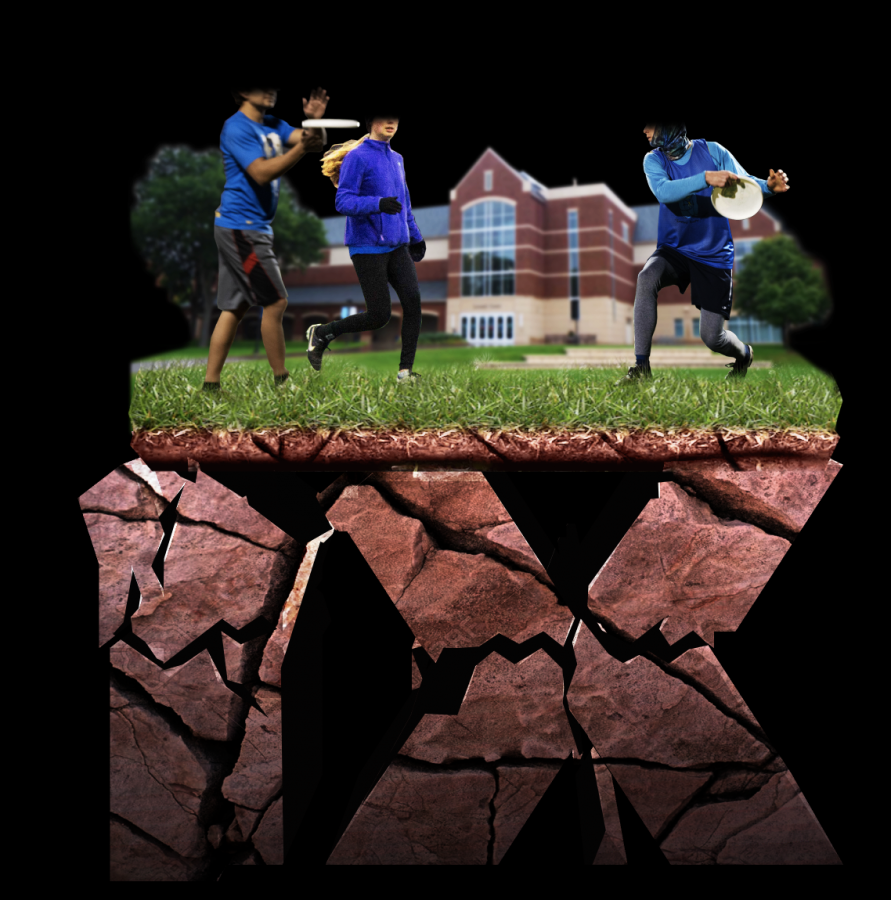
The History
The work to create a culture of consent began with an interest in fostering gender equity between the teams.
Several members of the women’s team, the Pursesnatchers, had raised concerns that during mixed practices and scrimmages, players from the Blue Monkeys created an overly competitive or even aggressive atmosphere that made them uncomfortable.
“[Women’s team members] felt minimized, or if they made a mistake that the boys wouldn’t throw to them anymore,” former Pursesnatcher and equity captain Izzy Ryde ’19 said. “There was always just some big divide about gender whenever we played mixed.”
In the spring semester of 2018, Ryde and other members of both teams wrote an equity statement acknowledging the need for inclusivity around race, gender, sexuality, socioeconomic status and disability on the teams.
After the statement was released, members of the Pursesnatchers formed an equity team as a means to carry out the statement. Ryde became the first official equity captain from the women’s team.
The equity team started its work by responding to numerous concerns regarding the dynamic between the two teams. This extended off the field and into the teams’ social interactions as well.
For example, some Pursesnatchers had raised concerns about the frisbee teams’ joint parties, citing a party culture that could become uncomfortable and even lead to an unsafe environment.
“Me and a friend who joined the team were concerned by the lack of conversation [about rape culture] based on the fact that we all party together,” Maddie Lee ’21 said.
“This kind of stuff just happens at college. It’s just a given and we can’t avoid it… it’s such a problem and it’s so normalized and ingrained, so it really has to be discussed to fix it.”
Ryde made it her goal as an equity captain to open up more opportunities for discussion surrounding equity and respect in hopes of creating a more comfortable environment at parties and during games. This included hosting sober events and Pursesnatcher-only events in addition to traditional parties with members of both teams.
In its current iteration, the equity team is made up of several appointed captains, with representatives from both the Pursesnatchers and the Blue Monkeys, and a body of volunteer equity team members. The equity team is responsible for initiating conversations during and outside of frisbee practices and scrimmages on how the teams can become more inclusive of all identities.
Confronting Sexual Violence
In spring 2019, the frisbee teams were confronted with an urgent situation: how to respond when someone brings forward allegations of sexual misconduct against a frisbee player.
It was nearly the end of that semester, a few weeks from graduation, when several members of both teams’ leadership learned that there were assault allegations against a senior on the Blue Monkeys.
Some leaders from both teams, including then-Pursesnatchers junior captain Louisa Mullin ’20, approached the Title IX office to determine whether they had the power to remove the accused player from the team roster.
Mullin said that when the captains approached then-Title IX Coordinator Timothy Dunn, he told them that they “[could] not kick people off the team.”
The frisbee leadership was confused; Dunn’s statement contradicted an earlier message to another senior member of the Pursesnatchers, Jane Roarty ’20.
In that email, from March 2019, Dunn wrote that he did “not have the authority to take action absent a finding that there been a policy violation. The team captains, however, have control over the team roster.”
“It was incredibly infuriating,” Roarty said.
In an email to The Mac Weekly this July, Dunn clarified his position, writing that “Students are ultimately responsible for [their] rosters. However, punitive action – like removal from a team – must be for cause. Such cause would be found in the organization’s governing documents or other guidelines binding student organizations.”
The mixed messages from Dunn ultimately stalled team leaders in responding to the allegations that spring.
In response to perceived inaction from team leadership, several first-year Blue Monkeys refused to attend their end-of-the-semester banquet unless the accused player was forbidden from attending.
Paul Barsz ’20, the equity captain for the Blue Monkeys, sympathized with their concerns. He agreed the student should be removed, but said it felt like the captains’ hands were tied; they had no way of removing the student from the team. Barsz believed the student could only be removed through the Title IX office.
While the accused member of the Blue Monkeys was never officially removed from the team, he eventually agreed not to attend the banquet and graduated weeks later.
“That was a wake-up call of sorts — a point when we were like, ‘Okay, this is a problem,’” Kata Hahn ’20, who was a junior captain at the time, said.
To establish concrete expectations, Barsz, Lee and Kiera Coe-Collins ’21 drafted a consent pledge, outlining the teams’ expectations for how players should practice consent in sexual encounters.
“At the time that we were making the consent pledge, most people in our spaces were pretty frustrated with Title IX as a whole in that it was right around the time that Timothy Dunn was leaving,” Barsz said. “There was so much dissatisfaction and disillusionment with the Title IX office that people felt the need to take things into their own hands and take a vocal stance against sexual assault.”
Some of the responsibilities in the pledge include “practicing exclusively safe and consensual sex in every sexual encounter,” intervening in unsafe situations and being accountable for creating and maintaining a safe social environment.
After many months of work by the Pursesnatchers and a few Blue Monkeys to develop practices to foster a safe environment, the pledge was finalized at the end of the summer 2019. Players on both teams signed the pledge in Sept. 2019, creating an agreement that their membership is conditional on a steadfast commitment to cultivating a culture of consent.
The agreement was this: “If I am found to be violating the values put forth in this pledge, I understand that I may be removed from my respective team by frisbee leadership.”
“I want to be very clear with the consent pledge language here,” Barsz said. “We’ve always approached it not from like ‘You’re not allowed on the team anymore,’ but instead ‘These are the values that we’re holding each other to.’”
Since it was written, the frisbee team has managed violations of the consent pledge twice, in February and March 2020 — both times when individuals came forward to frisbee leadership with allegations against members of the Blue Monkeys.
Both of those players removed themselves from the team.
In the spring 2020 semester, two members of the Blue Monkeys violated the pledge — to the knowledge of the captains of both teams — in February and March 2020.
Both players removed themselves from the team.
After the first allegation came out at the end of February, both the Pursesnatchers and the Blue Monkeys met within their teams to process what had happened and discuss the team’s response.
Two days later, on Sunday, March 1, Barsz heard allegations against another member of the Blue Monkeys. That week, Barsz met with the accused player and the Pursesnatcher captains and they agreed that he needed to remove himself. On Friday, March 6, the captains sent an email to both teams announcing that the player had violated the pledge and removed himself from the team.
Spring break began March 14, and, due to the pandemic, Macalester closed its campus on March 16. The teams did not meet to discuss either allegation again.
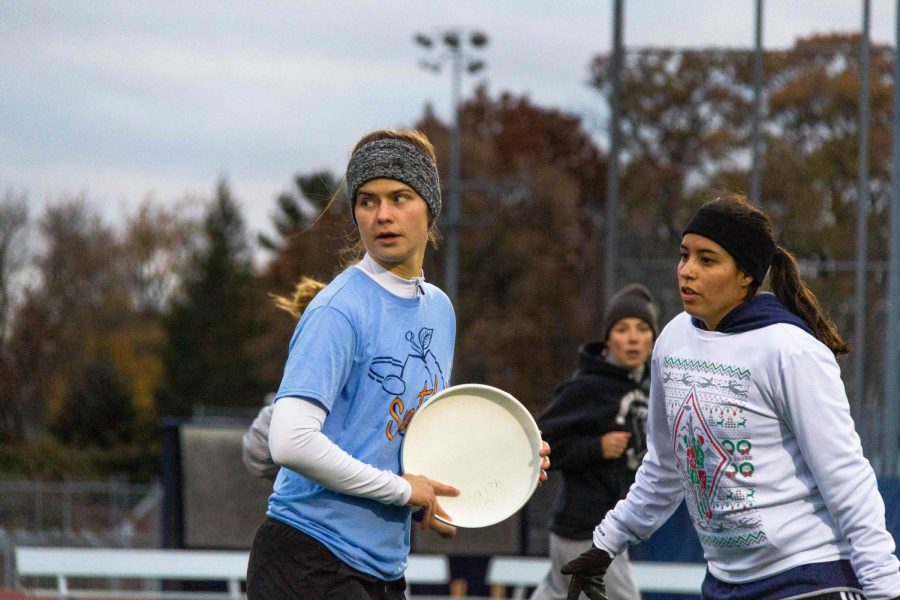
The Impact
On Macalester’s campus, survivors seeking resolution and accountability after sexual assault or harassment are usually pointed towards the Title IX office. Title IX and Bias Harassment Coordinator Regina Curran said her office is often best equipped to handle these cases.
For one, Curran’s role is intended to be unbiased, unlike a process carried out by teammates and friends. The Title IX office also has the power to enforce sanctions on individuals found responsible for sexual misconduct. A team, Curran said, might have a lot more difficulty enforcing an internal decision.
“When there is some sort of formal response, [investigators] need to be unbiased,” Curran said. “Because then I’m not emotionally invested one way or another in who the claim is against, who made the claim, those sorts of things.”
Equity captains do refer survivors towards resources like Title IX and the Hamre Center for Health and Wellness for additional support. But many students, and some team leaders, also harbor a lack of trust in the Title IX process.
An official investigation can be retraumatizing for survivors of sexual violence — the process requires survivors to tell and retell their stories to investigators and can last over 112 days, according to the Title IX policy.
2019-2020 equity captain Annika Jorgensen ’20 said she’s heard too many stories about Title IX investigations failing to help survivors at Macalester to feel comfortable leaving the issue up to official resolution processes.
“Why would I go to them?” Jorgensen said. “Why would I send anybody to them when in all likelihood it’s just going to cause more trauma and not address anything?”
Curran knows that the Title IX office is not always the first place survivors want to turn.
“Formal processes are not the answer for all things, and as someone who runs a formal process, I can acknowledge that,” Curran said. “There are circumstances in which it doesn’t serve for a whole variety of reasons. And not even because your case isn’t strong enough, just because you don’t want to. And I’m not going to pretend to know the answer to that.”
The equity captains attempted to provide an alternative to that process, but managing and enforcing the consent pledge as well as responding to the needs of players added hours of work to captains’ schedules last spring — Hahn estimated about 10 to 15 hours each week. While she wasn’t a senior captain, she watched her friends take on the additional burden of handling the team’s equity work and responses to sexual assault.
“It’s been super emotionally taxing,” Hahn said. “[The Pursesnatchers captains] felt a lot of pressure and anxiety over having to deal with that. And all of us did because we don’t know what to do. None of us are trained professionals, we don’t necessarily have the language to talk about this. And these are our friends we’re talking about.”
Many of the people doing this work on the team are survivors themselves, too. Lee said that this quickly becomes tiring.
“It is a little crazy that it’s left on students to do this work,” Lee said. “Survivors on the team should be able to just go and play frisbee and have fun and not worry about their safety and not have to advocate for themselves.”
The work became so overwhelming this spring, that after the second allegation came out, Barsz had to take a few days off from his role as equity captain to focus on school obligations.
The complications of an informal process, Jorgensen said, could be avoided if there was more widespread trust in Title IX’s ability to respond to survivors’ needs.
“It should not be our responsibility,” she said. “Every student should be safe on campus, should feel safe, should feel comfortable and should know that their administration will protect them and believe them and not protect perpetrators of sexual violence.
“The fact that we had to take on some of that role because [Title IX] has failed to do so is very, very upsetting to me.”
Some players see a tangible benefit coming out of the team’s continued efforts. Younger members of the Pursesnatchers say that the measures put in place by their team’s leadership have made them feel supported and contributed to a safe atmosphere.
“The team itself is pretty good at self-policing when it comes to events that the frisbee teams are sponsoring,” Pursesnatcher Phoebe Morris ’22 said. “I’ve never felt unsafe when it comes to a gathering with the frisbee teams, or like I am at all in danger.”
That said, the consent pledge and the removal process, for all its demands, still doesn’t live up to what some Pursesnatchers want — a total reimagining of the two teams’ social relationship.
“I don’t think the women’s team should be in contact with the men’s team… like, at all,” one Pursesnatcher said.
While the problem of sexual assault on campus is by no means limited to the frisbee teams, the equity team and community consent pledge are unique at Macalester — the first of their kind at the college.
Barsz said while it’s been stressful to enforce, he would encourage student organizations to adopt a pledge of their own.
“I think [adopting a consent pledge] is a good idea in that it takes a very clear-cut and concise stance on the issue and sets a precedent which was previously not in [the frisbee] community or from my understanding, any formal community on this campus,” Barsz said.
“Having that precedent and then setting that precedent in what happened this past semester… hopefully is all part of a process to eliminate sexual violence within our larger community,” he continued.
Others, like 2020-2021 senior captain Liam Ummel ’21, aren’t so optimistic. Ummel said that this spring, trying to respond to and process the sexual assault allegations, was the most alone he’s felt in his time at Macalester.
“I think [the pledge] was a good first step,” Ummel said. “[But] it’s a structural issue… The consent pledge and the clause of self-removal, those don’t fix what can become ingrained in people.”
Emails: [email protected], [email protected], [email protected]

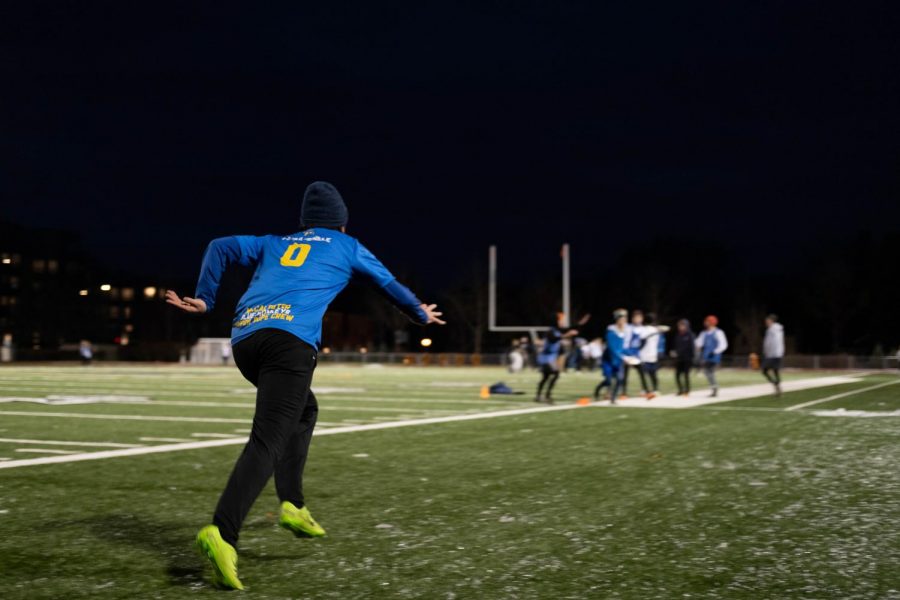
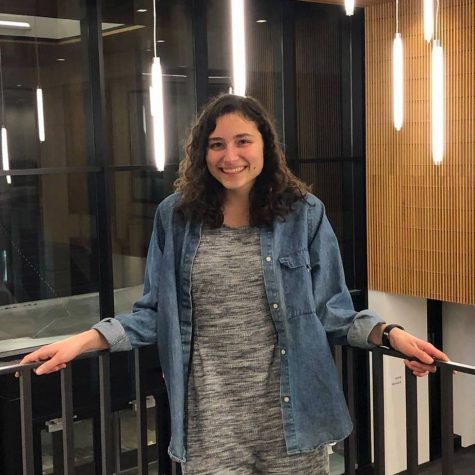

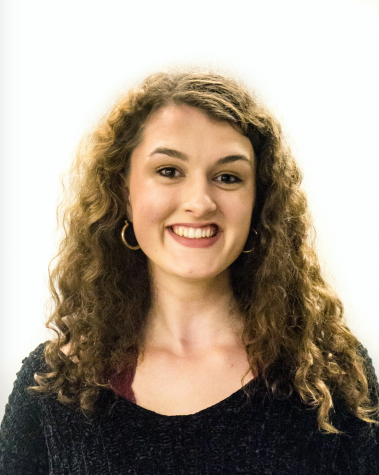












Julia Record • Sep 25, 2020 at 9:14 am
I completely agree with this comment. As the current equity captain for the PurseSnatchers, I very much appreciate the input. One of the main reasons why the Blue Monkeys sought to “manage” these acts of sexual violence is because we as women and survivors came forward to talk about this subject in the first place which is why that phrasing seems so wrong and invalidating. and as the article says, it quickly becomes exhausting because some of us have had to retraumatize ourselves to talk about this, especially since some of us have had bad experiences with the Blue Monkeys which in turn made those of us feel much more unsafe in mixed spaces. And the main reason we do this work is to protect our community of strong and powerful women, ESPECIALLY underclassmen!!
Nicholas Salvato • Sep 11, 2020 at 5:48 pm
Hi! I wanted to speak on a couple of things that I and others found troubling about the way this article was handled. I understand the inherent difficulty of writing about sexual violence as journalists, but I feel compelled to speak as I think this article fails to appropriately address sexual violence both generally and specifically in the cases last year.
I’d like to begin with the sentence that I take the greatest issue with. In the section titled “Confronting sexual violence,” the authors write: “the frisbee team has managed violations of the consent pledge twice.” What this sentence says at its core is that two members of the frisbee team committed acts of sexual violence. Yet it’s written in the passive voice and in a syntax which omits both perpetrators and survivors, and instead centers the “management” process by the male frisbee leaders. Again in the phrasing of this sentence, neither survivors nor perpetrators exist – sexual violence simply occurs, and the Blue Monkey leaders “manage” it. I hope I am making clear why I am not at ease with this framing. The narrative arc of this article repeatedly returns to the efforts of the male leaders to deal with sexual violence, which appears over and over not as an act committed by members of the frisbee team and for which many people beyond the perpetrator have culpability and complicity, but instead as a semi-random event which simply “recurs” or creeps through the defenses of the team against their wishes.
Another example. The article begins by saying “Macalester’s club ultimate frisbee teams have been reckoning with recurring sexual violence.” I am deeply troubled by this line of thinking. Sexual violence does not “recur” like an earthquake or cancer, randomly and beyond conscious control. It is actively and consciously committed by an individual against another person and then abetted, ignored, covered up – and before the act of violence is perpetrated, a culture which enables violent misogyny and predatory thinking is cultivated and taken part in by people far beyond just the individual perpetrator. Those that surround the perpetrator undoubtedly share in complicity. Yet in the opening line of this article, there is already a disappearing act of both perpetrators and survivors (not even to mention the team as a whole!). Sexual violence has simply “reccured.” We are then immediately assured that there is a reckoning. The efforts of the frisbee team to deal with this “recurring” is the first thing we hear about.
I could go on, but I don’t want to belabor the point. I do not have any direct knowledge of the acts of sexual violence committed by frisbee team members nor of the team itself, so I can’t and won’t extend my comment beyond my deep concerns with the framing of this piece. I hope I haven’t spoken out of turn and that you can understand why I am disturbed by how this article was written.